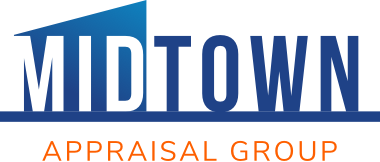Per-acre farm values in Canada have been rising more slowly than residential home prices (about 5% in 2019 vs 2018), but, like residential properties, values are largely dependent on regional locations and southern Ontario values can be as much as 35% higher than the provincial average.
With as much of 75% of Canadians’ wealth tied up in real estate, and given that we’re at the beginning of the largest generational transfer of wealth in Canadian history, the next decade will see an increased need for valuations of farm and agricultural properties, whether it’s for sale, estate valuations or inheritances.
But if you and your family have owned your farm property for decades, you may not ever have had to go through the valuation process. Here’s what appraisers will look at in order to arrive at a value for your property.
Location
Like almost all forms of real estate, the location of a farm or agricultural property is going to be a major factor in valuation. ‘Location’ in this case means both the broader region (i.e. southern Ontario vs northern Ontario) and the local proximity (i.e. 5 minutes from a major city vs 2 hours from a major city).
Zoning (and local zoning trends)
Ah, zoning. While large, going-concern farming operations see most of their value tied up in the actual farm, it’s the 5-to-100-acre parcels closer to residential areas that can be trickiest when it comes to zoning. A 100-acre parcel that’s a 20-minute drive from the city today may, in 10 years, be considered prime development land – unless the city expands in a different direction because the zoning board in your area is strict about denying requests for zoning changes or severance. And that will affect today’s value.
Profitability may be less important than you think…
You may have been operating your farm as a full-time small business, with employees and a marketing plan and maybe even a brand with some equity. But while most small businesses would be valued in large part based on their income and expense statements and other factors, that’s not always the case with farms in Canada. A buyer who is looking to continue a farm-based business or to expand their existing business may be interested in your profitability, but a buyer who just wants some acreage ‘in the country’ or to run an organic hobby farm, profitability won’t be making decisions based on your balance sheet.
…well, except for quota
Balance sheets and documentation become more relevant when we’re talking about quotas for beef, egg, dairy, etc. farms, where quotas have an established value and need approval for transfer. Livestock operations often trade on the basis of quota accommodation, so this will be a key factor in valuation.
Multiple vs specialized uses
Generally speaking, a farm or agricultural parcel that has the potential for multiple uses is going to attract more possible buyers than one in which the land, climate or zoning means that crops, livestock or other uses are limited. Properties which are largely rolling hills with rocky outcrops (as you see in eastern Ontario) are going to be less appealing to a wider array of purchasers than flat clear fields that can be put to many uses – and that will affect value.
House and outbuildings
Like zoning, the primary residence and outbuildings on a farm or agricultural property can have a huge impact on value – or be relatively unimportant. A purchaser looking for ‘a home in the country’ may be more concerned with the size, quality and amenities of the home than whether the land is productive; a purchaser who wants to combine a small organic farm with a cute B&B will be looking for a combination of the right dwelling and the right setting; a purchaser who wants to expand their broiler operation may not care at all about the house as long as the chicken barn is in good shape.
The role of the appraiser
Valuing farm and agricultural properties can be trickier than valuing homes in a subdivision: In a subdivision, the houses are easy to compare and the potential buyers are generally looking for the same sorts of things. Agricultural properties, on the other hand, can often be used in multiple ways, and therefore attract potential buyers who may place different values based on different assessments of utility and ROI.
This is where an accredited appraiser with experience in agricultural properties can be so important: An appraiser who knows the area (including the local zoning board, for example) can assess the current local market in the context of different potential uses and make a determination of the most realistic value.


